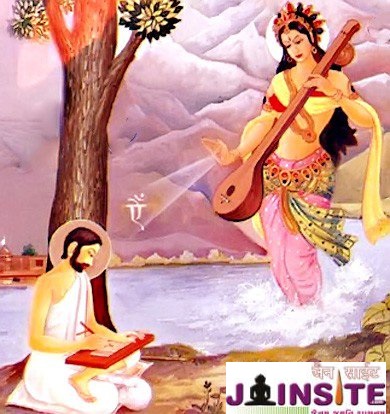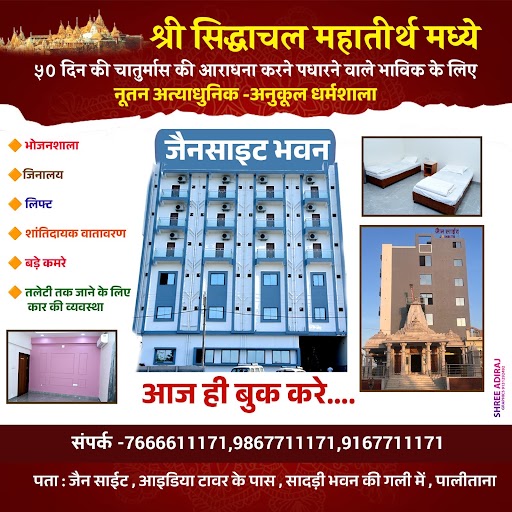Upadhyay Shri Yashovijayji Jain Story
If someone utters the word upadhyayji it would mean Shrimad Yashovijayji Upadhyay. ‘So says Upadhyayji’ is regarded as the final word and ultimate authority in scriptural matters. His contemporary monks regarded him as the sarvajna (omniscient) in matters of the scriptures and also as shrutkevali (scripture – omniscient). Author of more than 100 books in Sanskrit, Prakrut and Gujarati, he also earned the titles of Tattvavisharad and Kurchatsharda. Besides writing the books that were theoretical and academic, he composed poems that were immensely popular. As Shri Bhadrabahuswami was known as antim shrutkevali so also Upadhyayji can be regarded as antim shrutpargami (last knower of all Jain canonical scriptures). Since his time, there has been no other scholar as learned and competent as him.
He was born in a small village Kanoda in North Gujarat. Narayan was his father and Saubhagyadevi was his mother. Saubhagyadevi was so deeply religious that she would not have her food without listening to the recitation of Bhaktamar stotra. Once, because of heavy rains, she could not go to upashraya. Thus failing to listen to the recitation of the ‘stotra’ from the nun she had to do without food and water. Jashvant, the son, came to know about it and he told her mother that as he had been accompanying her to the upashraya and had been listening to the recitation of the stotra he knew it verbatim.
About five years of age, the boy recited the entire Bhaktamar stotra. Thus Jashvant, the darling son of the mother, came to be loved by all in the village. Once Jashvant joined the monk in expiatory recitals (pratikramam – i.e. penitential retreat) and he had learnt all the sutras that he heard only once. The religious parents dedicated such a bright child to the service of the religion.
The personality of Shri Yashovijayji had an aura about it. Pujya Shri Nayvijayji, the guru of Shri Yashovijayji, was also very happy with the pursuit of knowledge of his disciple. He thought that such a brilliant monk could achieve eminence if he could be sent to the learned scholars of Varanasi. At this juncture a Jain layman named Dhanji Sura requested the monk that in case Yashovijayji was allowed by the guru to go to Varanasi for further studies, he should be given the privilege of sharing the responsibility of looking after the arrangements for Yashovijayji’s stay at Varanasi. On the banks of river Ganga in Varanasi, Yashovijayji got the blessings of goddess Sarasvati. He studied the subject of Nyay (logic) and impressed by his deep knowledge even the non-Jain scholars conferred the titles of ‘Nyayacharya’ and ‘Nyayavisharad’ on Shri Yashovijayji. As he exhibited eighteen types of concentration (avadhan) before the suba (administrator) of Ahmedabad, the latter was surprised by Yashovijayji’s power of concentration and memory.
In A.D. 1687 he had his last chaturmas (four months’ of stay during monsoon at one place) on the sacred land of Dabhoi. He passed away after a very devoted life of 55 years. Upadhyay Shri Yashovijayji, who had composed works on logic, grammar and meditation and spiritual philosophy in Sanskrit, Prakrit and Gujarati, is known as ‘Laghu Haribhadraji’ or diuitiya (the second) Hemchandracharya. Because of his rich and diverse literary creations, Upadhyay Yashovijayji can be recognised as ‘antim shrutpargami’ just as Shri Bhadrabahuswami is known as the ‘antim shrutkevali’ in Jainism.



